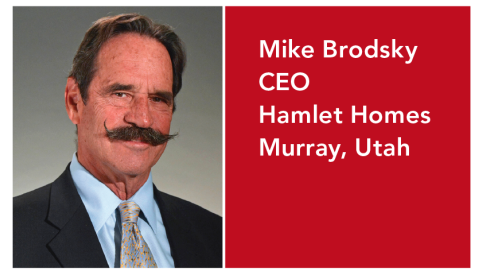The vast majority of candidates change jobs for the right reasons. Rarely is it a knee-jerk decision.
The first installment of Change Agents (January, 2005 PB), talked about several factors that motivate an employee to make a change. Money is one of element, but rarely is it the deciding factor. Money shouldn't be the factor, whether you are on the employer or the employee.The same principal applies when money is used to convince an employee not to leave.
The situation usually goes something like this:
- Employee X investigates an opportunity with a new company.
- Employee X participates in interviews with new company. The new company and Employee X confirm mutual interest.
- Employee X is offered and accepts employment with new company.
- Employee X tenders his resignation to current employer.
- The current employer goes into crisis mode and the "Don't Leave" patrol steps into action.
- Employee X suddenly learns how valuable he is and as proof of that, the current employer submits a counteroffer to Employee X.
- Employee X's ego is stroked by the newly-found value to his current employer, coupled with the nice pay raise.
- Employee X notifies the new company of decision to stay put.
When money becomes the deciding factor in whether you retain or excuse an employee, then both you and the employee have evolved into a purely transactional relationship.
The Makings of a Transactional RelationshipThe employee entered into an agreement with the new company and then backed out. "Let your Yes be Yes, and your No, No" was not meant to be situational.
The employee obtained a raise by resigning, whether the raise was deserved or not. Will the process be repeated again the next time a raise is desired? By giving the raise, the current employer has rewarded an employee for deciding to leave the company and betraying a commitment made elsewhere. Would they use the same guidelines in hiring new employees?
The employer/employee relationship has been irrevocably damaged. The degree of trust or loyalty between the employee and the employer will never be the same. Both parties will keep mental score cards from this point forward. In situations like this, the odds are slim the relationship will survive beyond another year.
Any other reasons behind the employee wanting to make a change remain largely unchanged. The reasons may be temporarily abated, but they did not disappear. In the end, everyone loses on this deal, including the company who — in good faith — extended an offer that was accepted.
If money is the primary attraction for someone to join — or stay with — your team, then don't be surprised when your turnover rate goes through the roof. If you buy talent — or buy it back — the talent will allow itself to be bought again.
There are always those who will go where the light shines the brightest. If you want to build a sustainable team, hire people who want to join for reasons beyond the compensation package.
Advertisement
Related Stories
Hamlet Homes' Mike Brodsky on Finding Successors and Letting Go
A transition that involved a national executive search, an employee buyout, and Builder 20 group mentorship to save the deal
Time-Machine Lessons
We ask custom builders: If you could redo your first house or revisit the first years of running your business, what would you do differently?
Back Story: Green Gables Opens Up Every Aspect of its Design/Build Process to Clients
"You never want to get to the next phase and realize somebody's not happy."






